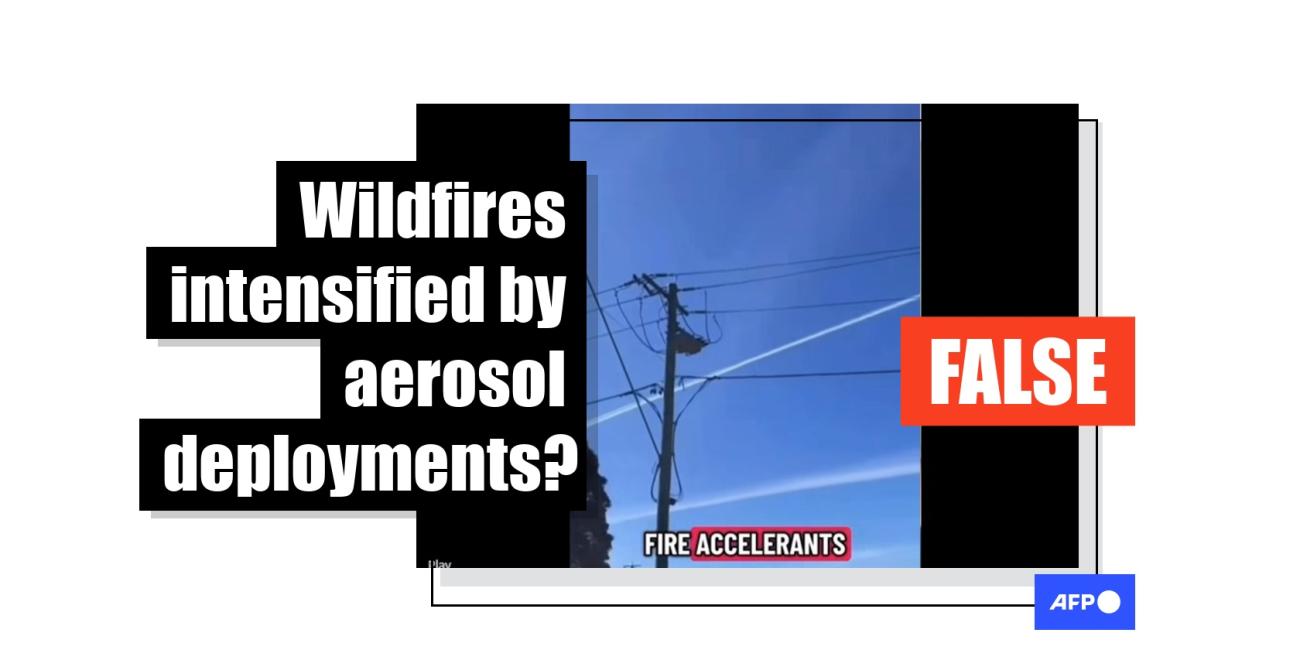
Social media posts minimize climate change impact on heat dome
- This article is more than one year old.
- Published on June 21, 2024 at 21:00
- Updated on June 21, 2024 at 21:43
- 5 min read
- By Gwen Roley, Manon JACOB, AFP Canada, AFP USA
"Is anyone else experiencing asymptomatic global boiling?" reads the caption of an image of a heat map of Canada posted to X on June 15, 2024.
The picture includes labels of phrases such as "atmospheric inferno" and "vaporized" and the accompanying text goes on to question forecasts of high summer heat by Environment and Climate Change Canada (ECCC) by pointing out cooler temperatures in certain parts of the country.
Further posts on X, TikTok and Facebook spread similar claims, blaming sensationalized weather reports in Canada and the United States, as a heat dome struck significant portions of both countries in late June.
An opinion piece in the Toronto Sun meanwhile proclaimed "it's June, stop freaking out about the temperature" (archived here).
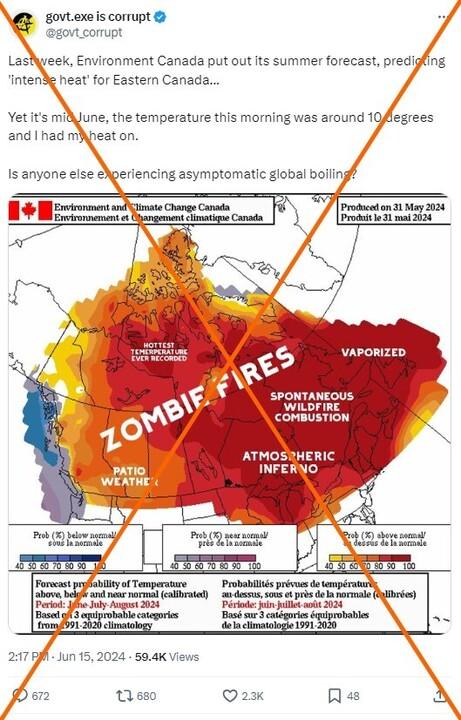
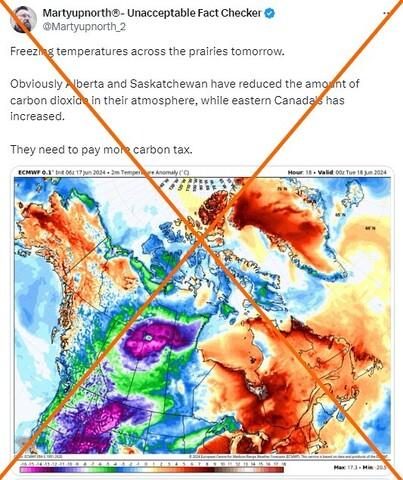
The comments followed days in which heat records were tied or broken in the northeastern United States and daily temperature records were set in Canada's Atlantic provinces and Ontario.
Scientists told AFP that the heat conditions observed could be dangerous and potentially lethal, and possibly worse than in prior years because of climate change, which has pushed up average temperatures. A panel of global scientists issued a similar warning in June 2024.
What is a heat dome?
Extreme temperatures hit (archived here) the Midwest of the United States, prompting warnings for the Mid-Atlantic region in mid-June. Toward the beginning of the month, an early summer heat wave (archived here) broke records in the Southwest.
A "heat dome" (archived here) refers to a phenomenon where warm air is pushed toward the surface of the Earth by high pressure lingering in the atmosphere, the warm air is then trapped, creating a dome effect, preventing or delaying cloud formation and precipitation.
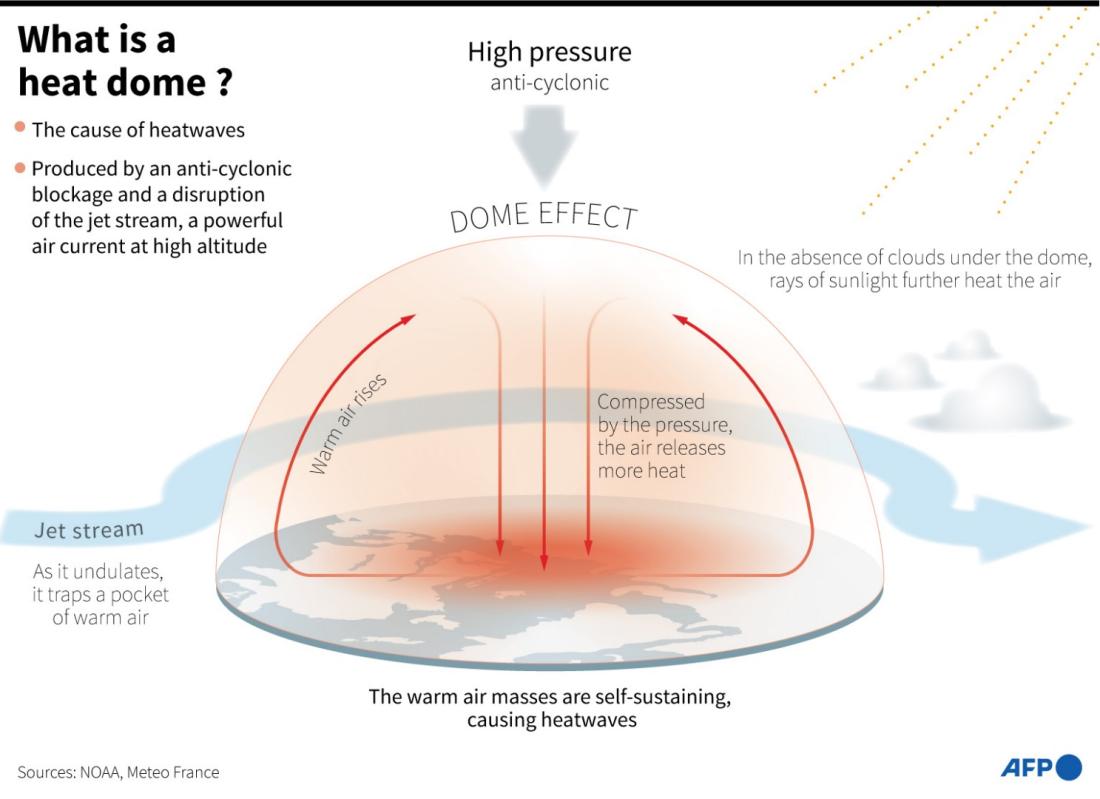
Michael Mann (archived here), director at the Penn Center for Science, Sustainability and the Media told AFP that such conditions do not just equate to warm air "which is what a 'heat wave' refers to -- but that there is a very deep layer of warm air and high pressure, associated with sinking dry hot air" similar to "desert conditions."
A heat dome almost certainly leads to a heat wave, Mann said, but not all heat waves are associated with heat domes, and such extremes during the summer season can likely be tied to anthropogenic warming.
"The early arrival of this heat in the Summer season, persistence over multiple days, and abundant sunshine will aggravate heat stress on those without reliable air conditioning," the US National Oceanic and Atmospheric Administration (NOAA) stated on June 21.
The 10 warmest years in the 174-year record have all occurred during the last decade (from 2014 to 2023), NOAA's National Centers for Environmental Information show (archived here).
NOAA also estimates (archived here) that there is a "one-in-three chance that 2024 will be warmer than 2023 and a 99% chance that 2024 will rank among the five warmest years on record."
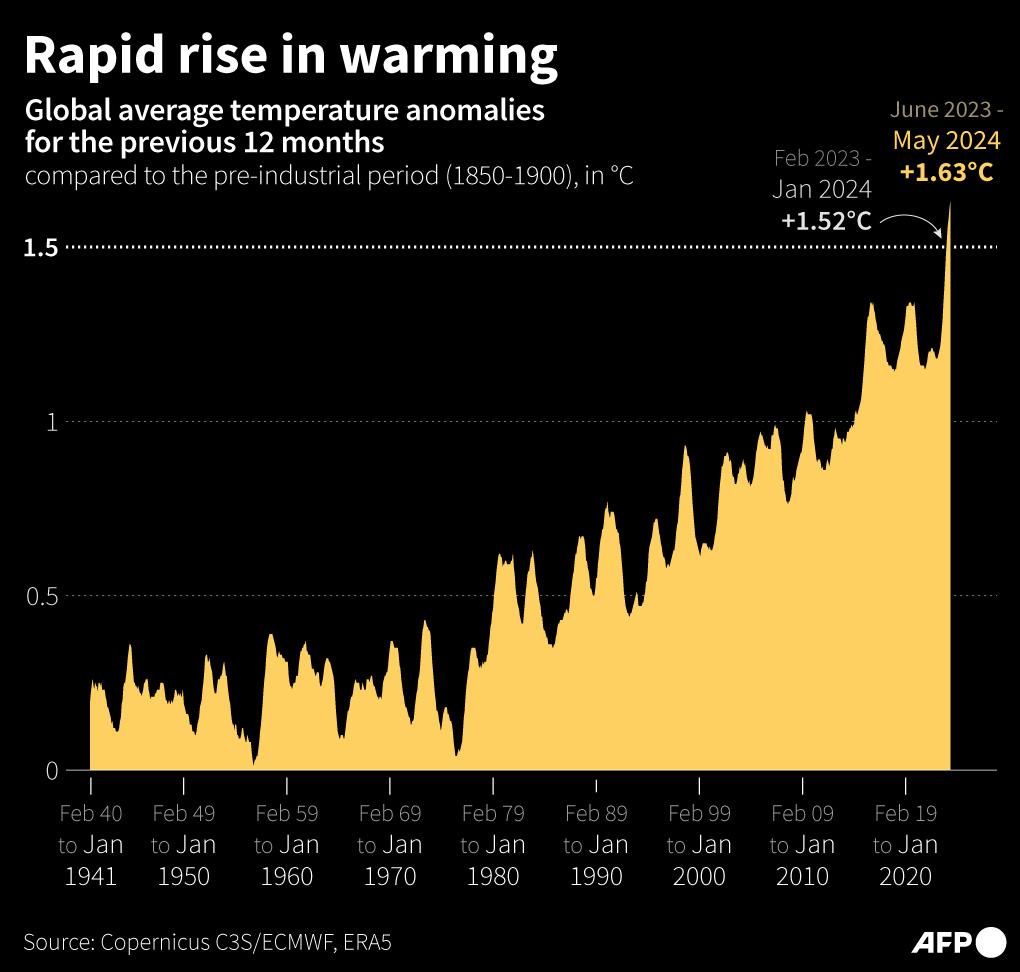
Heat waves intensifying
Piyush Jain (archived here), a research scientist at Natural Resources Canada, said that while extreme heat waves are not a new occurrence, their intensity and length are increasing. He pointed out the 2021 heat wave in the Pacific Northwest which saw the highest recorded temperature in Canada and led to the burning of a whole town in British Columbia was the result of a similar heat dome system.
While many of the posts and comments presented a narrative that claims heat waves are not cause for alarm during the summer or because other parts of the continent remain cool, Jain pointed out that overall global temperatures are rising and average temperatures during warmer months are getting higher.
"You're shifting that baseline, everything is moving towards being a bit warmer," he told AFP on June 18. "And it has a non-linear effect, if you like, on the extremes."
Karen McKinnon (archived here), assistant professor of statistics and the environment at the University of California- Los Angeles concurred.
"If the same heat dome had occurred decades ago, the underlying temperatures would have been cooler, so the heat wave temperatures would have been cooler as well," she told AFP on June 20.
Keith Alverson (archived here), Secretary General at the International Association of Meteorology and Atmospheric Sciences, noted that an "increase in hot extremes" associated with global warming is "virtually certain," citing the conclusions (archived here) of a panel of worldwide independent scientists in charge of writing reports on climate change and its impacts for the United Nations.
"This is the highest level of confidence they have collectively agreed about anything," Alverson told AFP on June 20.
"Such an extreme is precisely what the US East Coast, and many other regions of the world where many vulnerable people live, including India and China, are experiencing this June," he said.
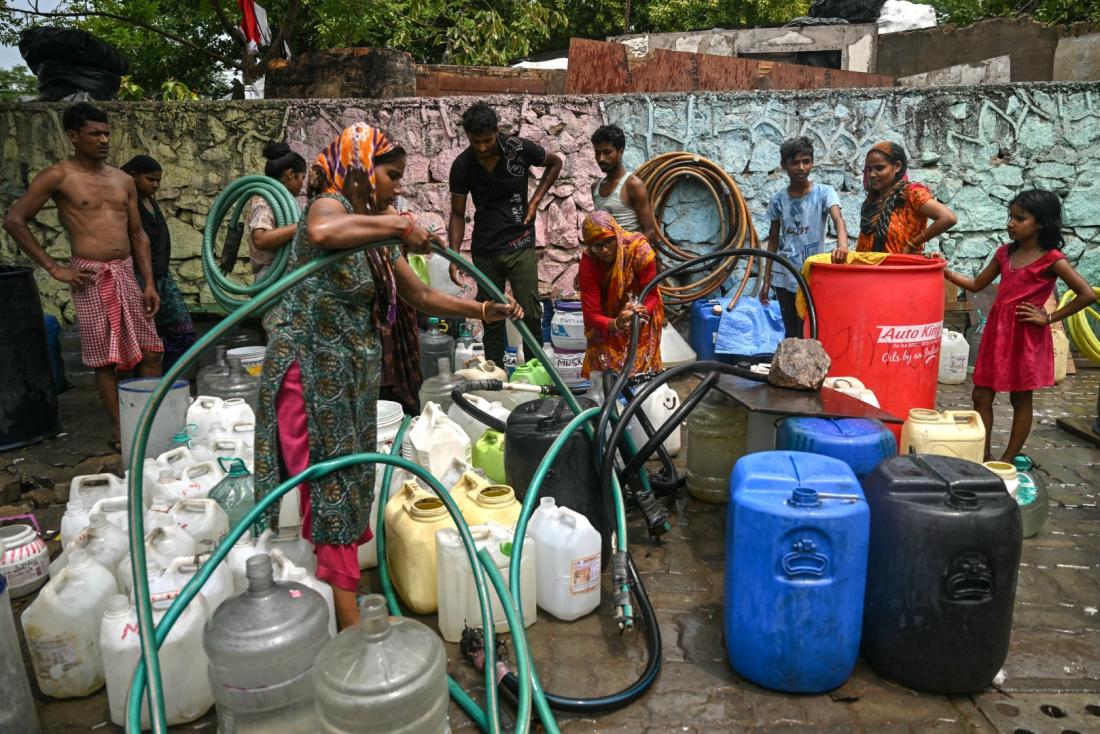
Penn University's Mann also remarked that climate models aren't doing a good job yet in capturing the effects of anthropogenic warming on extreme weather patterns -- "meaning that the models are probably underestimating the impact that climate change is having on these persistent summer weather extremes (heat domes, heat waves, wildfires, as well as extreme flooding events)."
Kent Moore (archived here), a professor of atmospheric physics at the University of Toronto, Mississauga, told AFP on June 19 that heat warnings were essential to protect the public.
"It's being done to preserve human health," he said, "we need to provide people ways to reduce their temperatures and keep things under control."
AFP has debunked other false and misleading claims tied to extreme heat events.
Paragraph 15 was updated to clarify Piyush Jain's title and add a link to his contact information.June 21, 2024 Paragraph 15 was updated to clarify Piyush Jain's title and add a link to his contact information.
Copyright © AFP 2017-2026. Any commercial use of this content requires a subscription. Click here to find out more.
Is there content that you would like AFP to fact-check? Get in touch.
Contact us


